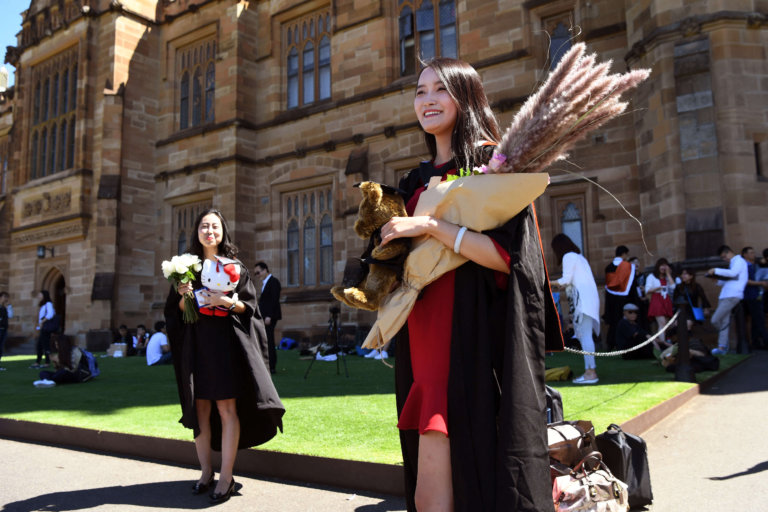
Chinese citizens are still keen on studying in Australia over other major destinations, a recent study has found, despite the challenges wrought by the pandemic.
A data analysis of internet sources from within mainland China was conducted to look into societal trends, particularly Chinese sentiment towards education in Australia. With this, researchers considered Chinese engagement on the topic on publicly available online sources such as search engines, blogs, social media, and online comments. This was measured against how such users felt about Australian education in November 2020.
Of this, it was found that of the four countries considered in the study, Chinese students regularly engaged with Australian-centric sources. This was followed by Canada, the US, and the UK.
Other findings include that the Chinese were:
- Engaging with all levels of Australian education, from primary school through to tertiary education;
- “Appreciative” that state and local governments in Australia sought to help Chinese international students during the COVID-19 pandemic;
- Almost entirely positive towards Australian education in terms of intensity and descriptors, and are ready to act as soon as borders open.
Combined, they suggest that Chinese users recognise and value not only the quality of education offered in Australia, but factors pertaining to its lifestyle and culture, as well. Most tellingly, they indicate that Chinese students see Australia as a potential study destination as well as one they are willing to build a future in.
The value of studying in Australia

Chinese students not only value Australia’s education system, but also its culture and lifestyle. Source: William West/AFP
The Australian education system is considered to be one of the best in the world. It remains the third-largest provider of education to international students and has a wide range of undergraduate and postgraduate courses and degrees, on top of vocational education and English language training.
Currently, Australia operates via a four-stage education system that spans early childhood years, primary school, secondary school, and tertiary learning. Its secondary school system follows a national curriculum framework that gives students a holistic learning experience.
Subjects taught include mathematics, science, history, languages, geography, the arts, health and physical education, information and communication technology, civics and citizenship, economics, and business.
It is additionally known for its quality of scientific research, particularly in the technological sphere. The country adopts new technologies at a faster rate than most other countries, and many technological developments and breakthroughs have been a result of scientists and researchers in Australia.
Perhaps its biggest draw, however, is its low cost of living and high levels of cultural diversity. Australia also has decidedly more affordable education options compared to the US, UK and Canada, making it an attractive destination for incoming students.
Australia boasts a vibrant multicultural community. One in four Australians were born overseas, and migrants are said to contribute over 10 billion dollars to the country’s economy.
Regardless of this, Amnesty International Australia has expressed a concern for the growing problem of racism in Australia. One third of Australians have experienced racism in the workplace or educational facilities based on their ethnicity. Moreover, a rising anti-Chinese sentiment in the country has contributed to higher levels of race hate attacks over the course of the pandemic.
Australia, international students, and COVID-19

Chinese users were appreciative of support afforded to international students in Australia. Source: William West/AFP
International students have had mixed feelings towards Australia over the course of the COVID-19 pandemic.
In 2021, Australian universities faced a sharp decline in international student enrollment, a result of its prolonged border closures. Students were frustrated by the mixed messaging put out by the Australian government in relation to the opening of its borders over the course of last year. Some students were left with no choice but to defer their courses due to this. Many opted for universities in Canada and the UK instead.
Still, international students in Australia were most definitely recipients of support from government bodies and universities alike. In 2020, a fund was set up to support over 33,000 international students in Victoria who faced financial hardship through lost wages and work as a result of COVID-19. Melbourne’s Lord Mayor announced in December that financial aid and incentive programmes were being offered to international students, including free tickets to events and attractions, wellness and wellbeing support, and employment advice. Other resources for international student support are readily available, too.
Researchers found that the Chinese indicated an understanding of both sides of the spectrum. The recent border closures were viewed as “difficult”, given the uncertainty of planning for travel.
However, the study found that the majority of Chinese internet users viewed the Victorian and South Australian government favourably, particularly when temporary migrants were mostly excluded from federal government support. On top of this, China remains South Australia’s largest two-way trading partner, stressing an importance for Chinese students to cultivate and maintain strong ties to the region.
This is reflected in the level of Chinese student enrollment in Australia, which has held up well over the course of the pandemic.
This comes despite a rising anti-China sentiment in Australia. In April last year, the Australian federal government cancelled Victoria’s Belt and Road agreements with China, and joined a diplomatic boycott of the Beijing Winter Olympics. An annual poll revealed that more than 60% of Australians viewed China as a security threat rather than an economic partner, showing a startling lack of trust in the country.
With this, it is unclear how relations between the two nations will develop over 2022 — and, most relevantly, how this will affect the decisions of Chinese international students in viewing Australia as an attractive higher education destination.










